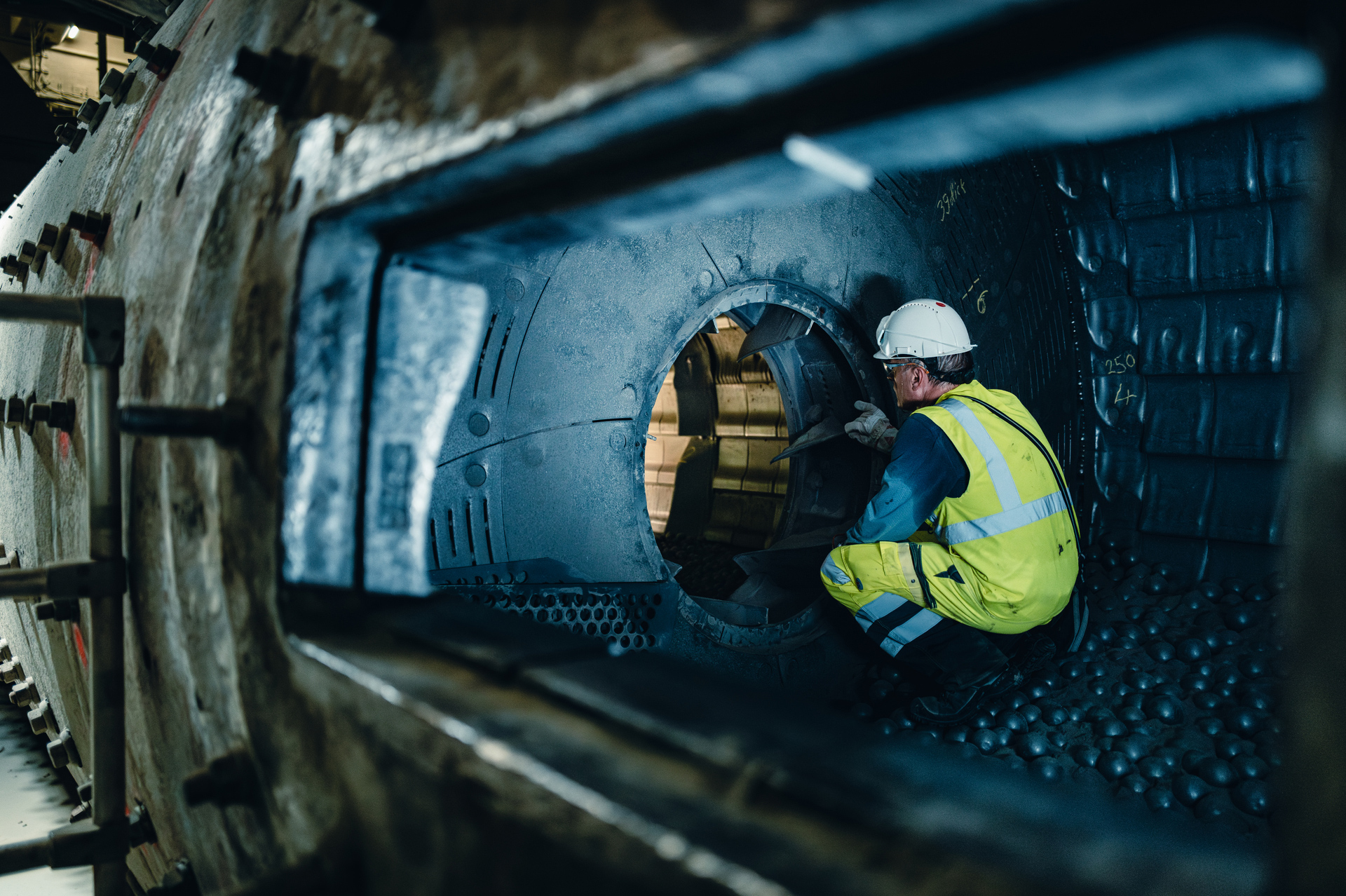Cement is a finely milled mineral powder, usually grey in colour. The most important raw materials for the production of cement are limestone, clay, and marl. Mixed with water, cement serves as an adhesive to bind sand, gravel, and hard rock in concrete. Cement hardens both in the air and under water, and remains in its hardened state once reached.
Cement is usually available in the form of a homogeneous bulk dry good. Its characteristics are standardised in order to ensure the required stability, reliability, and processability in the application.
Cements are classified according to their early and final strength as well as their composition. In addition to cements that consist of 100% clinker, there are so-called composite cements, in which a portion of the clinker is replaced by alternative raw materials, such as fly ash, ground slag, or limestone. As the production of clinker is energy-intensive and releases large amounts of CO₂, the use of alternative raw materials can conserve natural resources and reduce CO₂ emissions.
Depending on the desired application, different types of cement – each with a specific composition – are necessary. Cement characteristics can also be modified through the use of additives. We offer our customers a broad range of cement products, including quality cements, special cements with targeted characteristics, special geotechnical building materials and an expanded range of binders. Our product portfolio varies from country to country.



